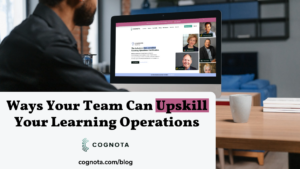How You Can Thrive When Dealing with an Uncertain Market
The news last month that the parent company of the University of Phoenix (UoP) was sold for $1.1 billion to buyout fund Apollo Global Management is no surprise: online universities have not provided the bottom-line results they’ve promised individuals and organizations.
According to the editors of Chief Learning Officer magazine, graduation rates for the UoP stood at a jaw-dropping 17% — astonishing for a company that was long-considered the leader in the online education category.
Online universities first chased individual students: typically older learners returning to school to complete a degree. This strategy has not worked out so well: according to CNN/Money, 50,500 students have fled the UoP alone.
U.S. Secretary of Education Arne Duncan was pleased with the buyout of the UoP, as it now will place more accountability on online universities that have long been viewed as degree mills.
However, in the last few years, online universities decided to pursue another market: corporations. In such partnerships, employees are granted access to classes and programs via their company’s Intranet or learning management system.
This makes perfect sense: provide seat licenses in bulk, so employees can take the classes they need, conveniently and online, without having to deal with headaches like reimbursements or absenteeism.
But with online colleges struggling, what might this mean for learning leaders who have struck partnerships with such universities? Was this a bad decision?
Not at all. There are several steps L&D leaders can take to ensure that their investment in a partnership with an online university delivers results. (In an uncertain market, you have the opportunity to take the upper hand.)
Value. Review your contract, and when up for renewal, try to snag more seat licenses — or fewer. Ensure that the online university is delivering on its promise, and adjust your contract accordingly.
Dialogue. Ask your learners about what courses they enjoy or find valuable. Determine what are the most highly sought-after courses or programs, or what deficiencies exist, and why.
Measurement. Though usually not part of the deal (at least according to discussions this blogger has had with several representatives from online universities), ask your rep if he or she can provide metrics as to what courses are being accessed, how many users are online, and adoption/drop rates. Visibility into utilization can provide guidance on the success of the overall initiative. Your learners may tell you one side of the story, but the numbers will tell you another.
Independence. Just because you signed an agreement with an online university does not mean that your job is over (though the online university would like you to think so). There are a several gaps in knowledge that still need to be addressed in the organization. Based on the feedback from employees, you can plan, design, and develop courses which complement online offerings without duplicating efforts. For example, an online course in Excel pivot tables might do the job just fine, but using pivot tables for a finance or accounting project specific to your organization will need specialized learning.
That’s where Cognota® comes in. Our Cognota platform allows you to harness the expertise from your in-house professionals to develop courses that allow employees to share knowledge or processes in a highly effective and engaging format.
In this manner, leave the static courses to an education provider of your choosing. For the good stuff, lean on your in-house experts and create content unique to your organization. In this way, everyone wins.




